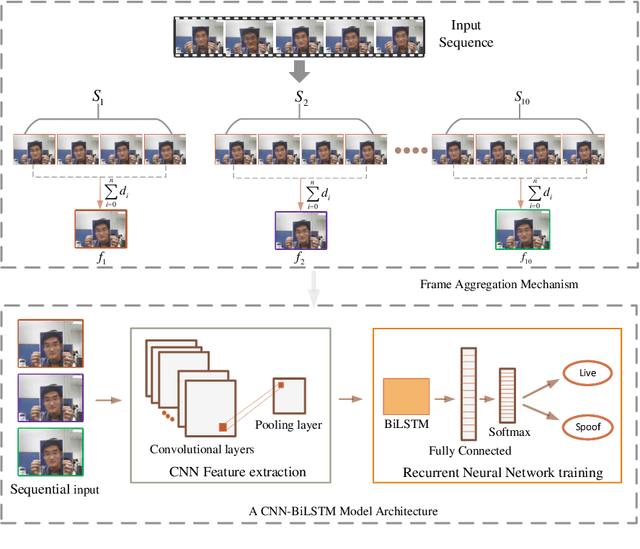Face Anti-Spoofing from the Perspective of Data Sampling
Paper and Code
Aug 28, 2022



Without deploying face anti-spoofing countermeasures, face recognition systems can be spoofed by presenting a printed photo, a video, or a silicon mask of a genuine user. Thus, face presentation attack detection (PAD) plays a vital role in providing secure facial access to digital devices. Most existing video-based PAD countermeasures lack the ability to cope with long-range temporal variations in videos. Moreover, the key-frame sampling prior to the feature extraction step has not been widely studied in the face anti-spoofing domain. To mitigate these issues, this paper provides a data sampling approach by proposing a video processing scheme that models the long-range temporal variations based on Gaussian Weighting Function. Specifically, the proposed scheme encodes the consecutive t frames of video sequences into a single RGB image based on a Gaussian-weighted summation of the t frames. Using simply the data sampling scheme alone, we demonstrate that state-of-the-art performance can be achieved without any bells and whistles in both intra-database and inter-database testing scenarios for the three public benchmark datasets; namely, Replay-Attack, MSU-MFSD, and CASIA-FASD. In particular, the proposed scheme provides a much lower error (from 15.2% to 6.7% on CASIA-FASD and 5.9% to 4.9% on Replay-Attack) compared to baselines in cross-database scenarios.
 Add to Chrome
Add to Chrome Add to Firefox
Add to Firefox Add to Edge
Add to Edge